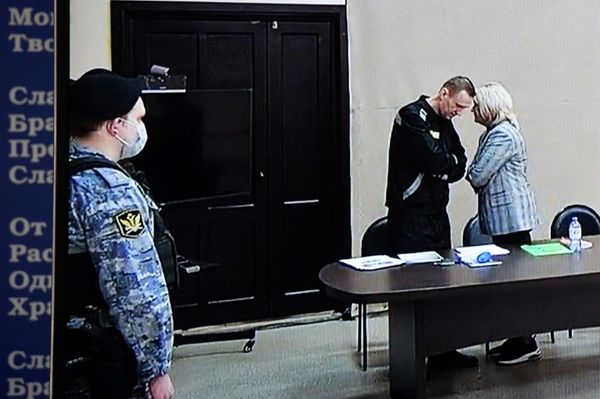
Extemporaneous actions or decisions can prolong a crisis—or make it worse—and why it is a crisis management best practice to consider possible responses to different crisis situations before the scenarios become a reality.
President Joe Biden and his advisers are doing just that prior to his meetings this week in Europe with U.S. allies about Russia’s war against Ukraine.
Worse Case Scenarios
The New York Times reported today that, ‘The White House has quietly assembled a team of national security officials to sketch out scenarios of how the United States and its allies should respond if President Vladimir V. Putin of Russia — frustrated by his lack of progress in Ukraine or determined to warn Western nations against intervening in the war—unleashes his stockpiles of chemical, biological or nuclear weapons.
“’The Tiger Team, as the group is known, is also examining responses if Mr. Putin reaches into NATO territory to attack convoys bringing weapons and aid to Ukraine, according to several officials involved in the process. Meeting three times a week, in classified sessions, the team is also looking at responses if Russia seeks to extend the war to neighboring nations, including Moldova and Georgia, and how to prepare European countries for the refugees flowing in on a scale not seen in decades.
‘’Just a month ago, such scenarios seemed more theoretical. But today, from the White House to NATO’s headquarters in Brussels, a recognition has set in that Russia may turn to the most powerful weapons in its arsenal to bail itself out of a military stalemate.’’
Some commentators have speculated about how the U.S. should respond if and when Putin decides to ramp up the war in various worse case scenarios.
Nuclear Weapons
Forbes reported that, “Dmitry Peskov, Russian President Vladimir Putin’s press secretary, would not rule out the possibility of Russia using nuclear weapons if it is faced with an ‘existential threat,’ and admitted Russia has not achieved its goals yet in its invasion of Ukraine in an interview with CNN on Tuesday.
“Peskov’s statement on use of nuclear weapons aligns with Moscow’s long-stated policies, in which it reserves the right to use nuclear weapons in retaliation to an attack using weapons of mass destruction as well as one using conventional weapons where the existence of the Russian state is deemed to be threatened.”
Chemical Weapons
Speaking to reporters at the White House today, Biden warned that Putin’s use of chemical weapons ‘is a real threat.”
Cyberattacks Against NATO Members
During a Q&A session with reporters yesterday, national security adviser Jake Sullivan said that, “... we could see circumstances in which a collective response by the [NATO] Alliance to a cyberattack would be called by [a NATO ally]. That is absolutely something where we and other countries could bring capabilities to bear to help a country both defend itself and respond to a particular cyberattack.
“Now, that’s not necessarily the same thing as a military response. That response could take many different forms. But we have made clear through NATO documents now—not just last year, but going back years— that cybersecurity is an Alliance issue, is— it is an issue where, collectively, NATO is prepared to pull together both to enhance resilience, enhance defenses, and, if necessary, use the appropriate tools to respond.”
Increasing U.S. Troops In Europe
In response to a question by a reporter about deploying additional U.S. troops to Europe, Sullivan said, “Well, I think there are two issues that are important to lay out. One is: What’s required in the immediate term? And right now, [the U.S.} Secretary of Defense [and] the Supreme Allied Commander of Europe believe that they have effective posture today for what’s necessary today.
“But, of course, that could evolve in the coming days and weeks, depending on Russia’s actions and depending on the overall threat picture.
“The second is: What is the longer-term force posture—not just for this contingency, this emergency, this invasion, but over the course of time? That is something the President will discuss with his [a]llies at the NATO Summit on Thursday.”
Warning The Private Sector
The Hill reported that, “FBI director Christopher Wray on Tuesday warned the private sector to prepare for potential cyberattacks, saying U.S. agents were ‘particularly focused on the destructive cyber threat’ from Russian agents.
“The FBI director spoke just a day after The White House warned companies to bolster defenses and prepare for potential cyberattacks with the Russian invasion of Ukraine intensifying as it approaches a month since forces entered the country.”
Anticipated Announcements
According to ABC News, Biden “plans to announce new sanctions against Russia on Thursday while in Brussels for meetings with NATO and European allies, according to a top national security aide...Biden is also expected to underscore efforts to enforce the avalanche of existing sanctions already announced by the U.S. and allies.
“He will join our partners in imposing further sanctions on Russia and tightening the existing sanctions to crack down on evasion and to ensure robust enforcement,” said White House national security adviser Jake Sullivan, who declined to further preview new sanctions the president will announce.”
According to news reports, some possible actions have already been considered—but rejected as too dangerous. They include enforcing a no-fly zone over Ukraine and delivering Soviet-era jet fighters from Poland. Of course, depending on developments, it is not impossible for those discarded options to be put back on the table.
Advice For Business Leaders
When managing a crisis, it is always best to have as many options as possible for dealing with the situation and be prepared to respond to a variety of worse case scenarios.
Trying to manage a crisis on the fly, without having carefully considered the implications and ramifications of your decisions, is never a good idea.
- List and describe possible crisis scenario that could happen to your company or organization before they become a reality.
- On a regular basis, practice your response to each scenario.
- Ensure you have the expertise, resources and skills that would be necessary to respond to each scenario.
- Update your crisis management plan to account for new scenarios and the lessons that are learned from testing your company’s responses to those scenarios.
- Pay attention to the latest news about different crisis scenarios and consider and prepare for how those scenarios would impact your organization.







